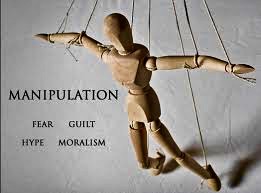
(This article was written in 2006 to the attorney general to encourage the introduction of a presumption of undue influence when large bequests are left to person in a position of dominance or dependence.
It was successful and resulted in Section 52 of WESA, of which there is a separate blog on this site.)
In the summer of 2006 the British Columbia Law Institute delivered to the Attorney General a sweeping report entitled Wills, Estates and Succession: A Modern Legal Framework. That report included many well-considered recommendations for changes to modernize this area of law.
One laudable change not advanced, however, involves allegations of undue influence in the drafting of a will. Committee members were equally divided on this question and therefore did not recommend a change. To its credit, the AG Ministry kept this issue alive and recently solicited input from the legal profession. Presumably they had concerns about the obvious potential for elder financial abuse under the current state of the law.
In this paper, we hope to illustrate the clear need for legislation to change the law in this area to protect vulnerable individuals.
Background
To give some context, let us first review fiduciary relationships.
Where one person is in a position of power, influence or dominance over another and a legal dispute arises between them, our law will apply certain legal presumptions. Where such a relationship of trust or confidence exists between the parties, the law generally considers the parties to be in a fiduciary relationship. For example fiduciary relationships include caregivers and clients/patients, lawyers and clients, doctors and patients, to name a few.
In an ongoing fiduciary relationship, where the vulnerable party gratuitously transfers away an interest in property to the dominant party i.e. the fiduciary, then a presumption of undue influence arises. In other words, in any court challenge to such an inter vivos transfer, the law presumes that the recipient used undue influence in order to cause the vulnerable person to gift the property over.
In any legal proceedings involving an inter vivos gift therefore, the onus of proof will be on the recipient of the property, i.e. the dominant party or fiduciary.
Thus the fiduciary/recipient must satisfy the court that the transfer did not come about as a result of undue influence. The fiduciary/recipient will be required to prove that the transfer was an act of the free will of the transferor and that the fiduciary did not unduly influence the vulnerable party into making this transfer.
No Presumption of Undue Influence arises for Gifts by Will under the Existing Law
Paradoxically, this presumption does not apply in the case of wills. In other words, if the gift is not made inter vivos, but rather is a gift after death by means of a will, then no presumption of undue influence will arise.
Feeney in The Canadian Law of Wills, 3rd ed., Vol. 1 sets out this legal distinction at page 42:
“In the case of gifts inter vivos to persons standing in a fiduciary relationship, or some other relationship whereby the donee was in a position to overbear the donor, such persons must show that they did not influence the donor in making the gift. There is, so to speak, a presumption of undue influence. There is no such presumption in the case of wills. A person in a position to overbear a testator may exercise persuasion to obtain a will or legacy in his favour and it will stand in the absence of positive proof of undue influence by those who assert it.”
This anomalous legal treatment has historical roots in the distinct jurisdictions of the courts of Law and Equity. We suggest this distinction has no merit in modern times.
Indeed this anomaly leaves society’s vulnerable people wide open to manipulation and abuse by predators. This is especially so with elderly people, particularly those in need of care.
For example, suppose an elderly woman lives alone. Her long estranged son, the black sheep of the family, offers to move in to help care for her. He moves back into the family home and soon thereafter she signs a homemade will leaving him most of her estate and excluding her other children. As a caregiver, this son is in a position of trust yet no presumption of undue influence will arise. If she made this same transfer, effective during her lifetime, the presumption of undue influence would arise.
As the law presently stands, the disappointed beneficiaries challenging the will must affirmatively prove that the gift in the will was brought about by means of undue influence. Clearly this is very suspicious but yet how can the other children to prove what actually happened?
Like most types of abuse and deceitful activity, undue influence almost always occurs behind closed doors. Because it generally takes place in secret, in most cases undue influence is impossible to prove, especially now that the principal witness is now dead. This is precisely the reason a presumption of law is so important in such cases.
Just how difficult is it to prove undue influence?
To appreciate the difficulty of proving undue influence, one only has to examine the facts of the leading Canadian case Vout v. Hay (1995), 7 E.T.R. (2d) 209 [1995] 2 S.C.R. 876
This case involved Mr. Hay, who was murdered at 81 years of age. He lived alone on his farm and, three years before his death, he had made his will. It left small cash legacies to his brother, nephews and nieces and a farm to one nephew. This same will, however, left another farm and the $320,000 residue to Ms. Vout aged 24. She had been paid to help the deceased with chores on the farm and was friendly with him although there was apparently no “romantic involvement”. She was initially a suspect in the murder however another man eventually confessed to the crime.
Notably, no lawyer was involved either in the preparation or execution of the will. In fact a legal secretary testified that Ms. Vout had phoned for the wills appointment and had given her the purported wills instructions by phone. The secretary then prepared the will and Ms. Vout attended with Mr. Hay and remained present throughout his one appointment. He executed the will before two legal secretaries.
The legal secretary also testified that she had read the will over to Mr. Hay who, hesitated at one point and looked at Ms. Vout. Ms. Vout responded “Yes, that is what we discussed. That is what you decided” and he nodded to continue. Ms. Vout later instructed the secretary not to send the account to the farm and she came in later to pay the account herself.
Although the legal secretary had no apparent motive to lie nor any reason to be mistaken, Ms. Vout denied having played any role in relation to the wills instruction or being present for its execution. She did, however, admit to paying for its preparation. The trial judge made no findings as to which version he accepted. Witnesses at the trial described the testator as being eccentric but alert, smart, independent, determined and not easily influenced.
The trial judge found no undue influence and admitted the will to probate. On appeal, the Court of Appeal held that the burden of disproving undue influence was on Ms. Vout because of the suspicious circumstances surrounding the will’s preparation and execution. They allowed the appeal
The Supreme Court of Canada reinstated the trial original judgment, ruling that even though there may be suspicious circumstances surrounding the making of the will, the burden of proof with respect to fraud and undue influence remains on those challenging the will.
From this decision, one can see just how difficult it is to establish undue influence, short of a full confession by the dominant party.
Major Financial Disincentives to Pursuing such Claims
Let us turn to the practical ramifications of this decision. Undue influence is an equitable doctrine which is a category of constructive fraud. Legitimate influence is separated from undue influence by a very fine line. Therefore, these cases turn on the peculiar circumstances in question. Any trial invariably involves a meticulous examination of the surrounding facts.
Pursuing such a claim is therefore very costly. It will involve many days of examinations for discovery and trial time. Even before reaching the courtroom, the disappointed beneficiaries must pay substantial expenses including fees for court reporters, medical expert reports and likely private investigators. They usually need expert help if there is any hope of piecing together what happened behind closed doors.
What is more, where disappointed beneficiaries fail to prove their undue influence claim, they are often severely penalized. The courts are increasingly awarding full indemnity for costs against parties who fail to prove such claims. Thus they must pay both their own costs and often special costs for the successful heirs. Special costs can easily be in excess of $150,000.
Needless to say, this is a huge disincentive to bringing such an action. In practical terms the stakes are simply too high for most disappointed beneficiaries to mount such a challenge.
Possible Beneficiaries of Undue Influence
As we have said, it is not simply grasping caregivers that stand to benefit from such wills.
In January 2008 the New York Times ran the most recent article in series about the lawyer for the late Brooke Astor. She died at 105 years and her lawyer has been charged criminally with helping Mrs. Astor’s son to exploit her financially during the last years of her life.
According to the Times this lawyer, in an arrangement with other lawyers who drew the wills, had previously received very large bequests from several very grateful rich clients. Under one will, for example, he received most of the $15 million estate. In another will, signed the day before he died, an 83 year old economist left Mr. Morrissey a Manhattan apartment and art collection. There were other examples given of the very large bequests left him by elderly clients.
We hate to contemplate this happening closer to home but the potential for abuse is certainly there. At present, B.C. lawyers are not required to disclose any inheritances from clients.
Protect Elders From Abuse
The present state of the law leaves vulnerable people, particularly elders, wide open to financial abuse in terms of their wills, particularly by their caregivers.
Anytime vulnerable people are being cared for by others, there is potential for abuse. We have seen this time and time again in the tales emerging about abuse in native residential school and other institutions. Undue influence is simply one more form of abuse of the more vulnerable. Such abuse, whether sexual or financial, never takes place openly.
One principal difference between child abuse and elder abuse, however, is that child victims may, sooner or later, disclose the abuse whereas elders often take their stories to the grave.
By the very nature of their disability, those in need of care are more likely to be isolated physically, socially and emotionally. Whether their caregiver is a family member or an unrelated person, they are sitting ducks for exploitation by anyone who pays attention to them. That exploitation can range from subtle manipulation, to coercion, to outright physical abuse.
In terms of elders in particular, they often have very little voice. Even should they complain, they may well not be believed. What is more, they will often put up with indignity to stay in their home, knowing that if they lose their caregiver they will likely be institutionalized. Not only will this mean losing their relative dignity and comfort. For many elders, institutionalization means death.
What would the Proposed Change Mean?
The value of changing the onus of proof in these cases is that it will shed light on bequests to those in a position of trust or influence. Clearly many of these bequests are bona fide however the potential for elder financial abuse is enormous as the law now stands.
Challenges by disappointed beneficiaries will usually arise only where there are suspicious circumstances, for example a homemade will, executed without legal advice, that contains a marked departure from the dispositions set out in previous wills.
Any presumption of undue influence is rebuttable by showing that the will was made after full, free and informed thought. This is most often done by showing that the testator obtained proper independent legal advice.
Changing the onus of proof will not mean that a testator cannot make provision for their caregiver or someone in a position of trust. Naturally a vulnerable testator should be able to change their will and make valid bequests. The greater scrutiny will simply help to ensure that he or she made truly wished to make that bequest and was not coerced into doing so.
It is fallacious to suggest that changing the presumption of undue influence will “open the floodgates of litigation”. As a practical matter smaller gifts to a fiduciary, whether in life or by will, are unlikely to be challenged.
Firstly there is nothing suspicious about a testator recognizing a fiduciary in a token way. It is only when a testator gives away significant gifts, without apparent justification, that suspicions become aroused.
Secondly, the high cost of litigation has a very strong dissuasive effect for most would be challengers. A court challenge will likely occur only where there are both suspicious circumstances and a sizeable amount at issue.
Similar reasoning applies with respect to gifts by will to a family member who is also in a position of trust, for example as a caregiver or as the holder of a power of attorney.
A change in the applicable presumption does not mean that a testator cannot make significant provision for that family member. It will mean simply is that where there is a challenge to the will, it will be incumbent on the beneficiary to offer evidence to rebut the presumption, for example by pointing to similar provisions under previous wills or pointing to the independent advice the testator received from a legal professional prior to executing the new will.
Changing the onus of proof thus will simply ensure that the dominant person or fiduciary, who most often has the greater knowledge of the circumstances, will now bear the burden of proof.
Conclusion
There is simply no valid policy reason to offer protection to vulnerable individuals in respect of inter vivos gifts and not in respect to their wills. The potential for financial abuse, especially elder abuse, is the same in both situations.
Our law ought to reflect that reality by changing the presumption of undue influence to ensure that any gift made represents the true will of the vulnerable donor, whether made inter vivos or after death.
If you agree with our position in this article, then we encourage you to write to the Attorney General and to let your Provincial MLA know of your concern.



